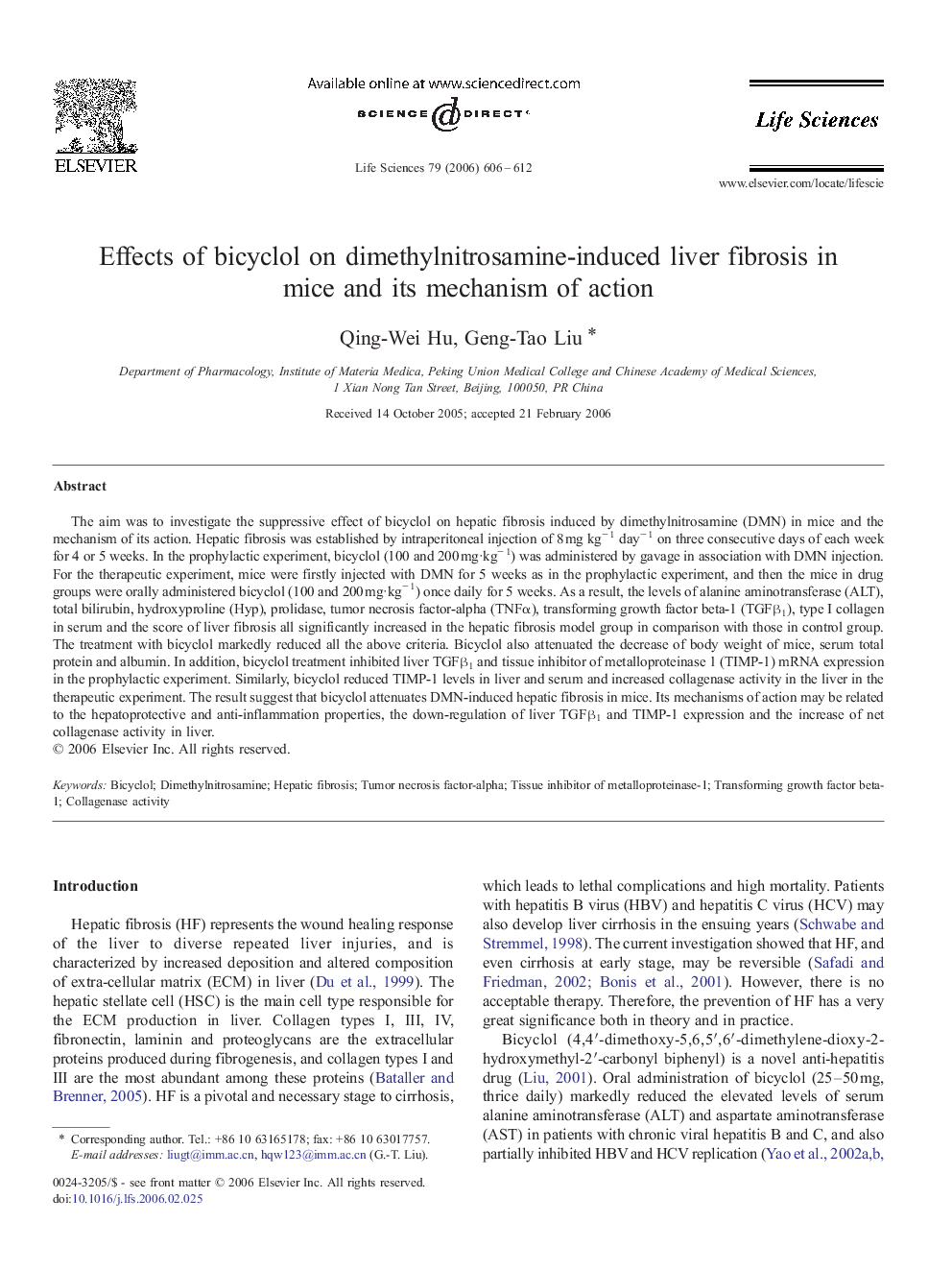| Article ID | Journal | Published Year | Pages | File Type |
|---|---|---|---|---|
| 2554204 | Life Sciences | 2006 | 7 Pages |
The aim was to investigate the suppressive effect of bicyclol on hepatic fibrosis induced by dimethylnitrosamine (DMN) in mice and the mechanism of its action. Hepatic fibrosis was established by intraperitoneal injection of 8 mg kg− 1 day− 1 on three consecutive days of each week for 4 or 5 weeks. In the prophylactic experiment, bicyclol (100 and 200 mg·kg− 1) was administered by gavage in association with DMN injection. For the therapeutic experiment, mice were firstly injected with DMN for 5 weeks as in the prophylactic experiment, and then the mice in drug groups were orally administered bicyclol (100 and 200 mg·kg− 1) once daily for 5 weeks. As a result, the levels of alanine aminotransferase (ALT), total bilirubin, hydroxyproline (Hyp), prolidase, tumor necrosis factor-alpha (TNFα), transforming growth factor beta-1 (TGFβ1), type I collagen in serum and the score of liver fibrosis all significantly increased in the hepatic fibrosis model group in comparison with those in control group. The treatment with bicyclol markedly reduced all the above criteria. Bicyclol also attenuated the decrease of body weight of mice, serum total protein and albumin. In addition, bicyclol treatment inhibited liver TGFβ1 and tissue inhibitor of metalloproteinase 1 (TIMP-1) mRNA expression in the prophylactic experiment. Similarly, bicyclol reduced TIMP-1 levels in liver and serum and increased collagenase activity in the liver in the therapeutic experiment. The result suggest that bicyclol attenuates DMN-induced hepatic fibrosis in mice. Its mechanisms of action may be related to the hepatoprotective and anti-inflammation properties, the down-regulation of liver TGFβ1 and TIMP-1 expression and the increase of net collagenase activity in liver.
